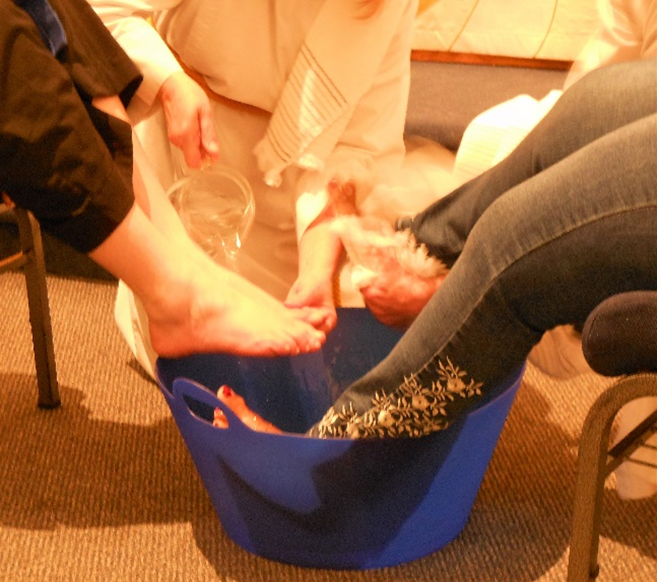Maundy Thursday
Unless we are talking about sponging a little one’s ticklish toes, care-giving for someone who can’t do so themselves, or you are a priest long privileged to take on the role of servant on Maundy Thursday, the chances are that you don’t think about washing anyone else’s feet too frequently.
If we allow our imaginations to take us to that borrowed upper room, where the festival of Unleavened Bread was being celebrated, what might we experience? The mood would have been convivial. It was Passover, the solemn commemoration of the flight from Egypt. The event, rich in religious meaning, in ritual and in prayers, was also a party. Food, wine, laughter and conversation would have been the order of the day. But during dinner, Jesus does something totally unexpected. He invites his disciples to let him wash their tired, dusty feet. While each Gospel refers to this Seder meal, the last supper, only John’s Gospel (Chapter 13) records the story of this humble, intimate act. The passage paints the picture of Jesus as Servant, washing the dirty feet of those who claimed discipleship. Jesus wanted to show his friends how much He loved them and how they could care for each other as God did. Much to Peter’s bewilderment, Jesus, their Teacher and Lord, knelt in front of them and bid them to be gently touched and blessed. And there is a mandatum, a commandment to take to heart: “I give you a new commandment, that you love one another. Just as I have loved you, you also should love one another. By this everyone will know that you are my disciples, if you have love for one another.” (John 13:34-35)
Then, a sharing of bread and wine in a new way. What we understand as the institution of the Holy Eucharist, is recorded in the gospels of Matthew and Mark: “Take, this is my body.” and “This is my blood of the new covenant, which is poured out for many”. It is Luke who writes “Then he took a loaf of bread, and gave it to them, saying, “This is my body, which is given for you. Do this in remembrance of me. And he did the same with the cup after supper, saying, “This cup that is poured out for you is the new covenant in my blood.” (Luke 22: 19f) How would you have responded to Jesus that night? What would you have done, felt and thought if you were there?
And still a little later, when you witnessed the betrayer’s kiss traced on a Saviour’s cheek?

